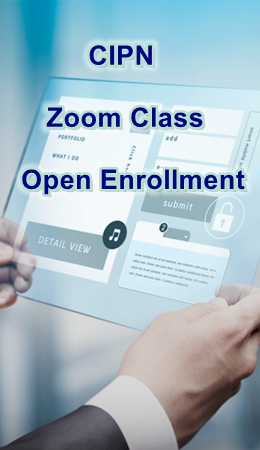Introduction
The purpose of this professional certification program is to permit the candidate to:
- Demonstrate professional competence, enhance professional recognition, and pave the way for promotion to higher levels within the organization.
- Build personal confidence by mastering professional inventory and production skills.
- Increase the candidate’s contribution to his/her organization’s “bottom line” by learning to accurately predict outcomes and initiate actions that achieve desired results.
Completion of this program will enable the candidate to:
- Understand elements of the supply chain with attention to distribution planning, supplier interfaces, and customer service.
- Forecast demand, provide priority control and manage lead-time.
- Manage, control, and account for inventory.
- Integrate production and inventory management through master scheduling and material and capacity requirements planning.
- Implement systems and technologies, including MRP, MRPII, ERP, JIT, and TQM.
Completion Requirements
After the completion of the nine course curriculum, a training certificate will be awarded. If students take and pass the International Purchasing and Supply Chain Management Institute (IPSCMI) certification examination (3 hour certification examination), they will be certified by the International Purchasing and Supply Chain Management Institute as a “Certified Manager of Production Operation (CMPO)”.There is an additional charge for this testing and certification (normally $50 for testing and $220 for certification).
Class Schedule
The training session is generally taught in Modules (1 to 3 days per Module) on successive weekends (Friday/Saturday/Sunday). The purpose of the program is to introduce the student to the concepts of international transportation and logistics as they apply to international supply chain management. This incorporates an understanding of the principles of business logistics and international governmental issues required to source materials or place product at the right location, at the right time, for the right price. All IPSCMI instructors are professionally certified, either as an APICS CPIM or an IPSCMI CMPO (sometimes both). Candidates in this certification program are expected to be highly motivated, disciplined, self-starters.
The unique delivery modality allows this program to be offered on-site at any company or governmental agency that wishes to bring the program directly to its employees. In addition, the program can be given online, using Blackboard or another online learning courseware. These delivery modes can increase student and company convenience by reducing travel time, missed work hours and incidental costs that normally accrue to students.
This Certification Program is a core certification program of the International Purchasing and Supply Chain Management Institute. This program offers the designation of CMPO (Certified Manager of Production Operation) to candidates who demonstrate their understanding of the fundamentals of the profession through the successful completion of rigorous professional certification examinations based upon the PRODUCTION OPERATION BODY OF KNOWLEDGE. (POBOK).The IPMBOK is supported by nine modules of study material.
Examinations
Completion of the certification program requires completion of a multiple choice examination. The examination is prepared by a Board of Examiners consisting of a range of Certified, Sustaining, and Educator Members within the International Purchasing and Supply Chain Management Institute.
The examination locations are determined by the individual candidates and their proctors. A proctor may be an individual who is currently an active Certified Member, or a manager, supervisor, teacher, professor, or anyone of such standing. Each proctor is determined on a case-by-case basis. IPSCMI wishes to make it possible for every qualified candidate to complete the certification program in a convenient and timely manner.
Professional Designations
Successful candidates are granted the designation of CMPO. This certification may be used just as similar recognitions which are employed in accounting, insurance, medicine, law, and other professions. Either the full expression or the initials may be used after the individual’s name on business cards, stationery, etc.
Time Limitation
The Board of Examiners realizes that many applicants are employed on a full-time basis and, as such, are limited in the amount of time available to prepare for the examinations. Without some guiding time requirement, however, candidates tend to lose the concept of the examination program and the material covered. Therefore, the Board of Examiners has established a five year maximum time limit for acceptance of completed requirements. The time limitation may not be waived without the approval of the Board of Examiners.
Modules
The certification program consists of nine modules and an 80 question multiple choice examination prepared from the PRODUCTION OPERATION BODY OF KNOWLEDGE. (POBOK).
Candidates may complete the modules in any order. However, the suggested sequence is spelled out below.
Module 1 Basics of Supply Chain Management
Explore the basic concepts of managing the flow of materials in a supply chain. In the Basics you get a complete overview of material flow, from internal and external suppliers, to and from your organization. Topics include
- Elements of the Supply Chain
- Just-in-Time (JIT)
- Total Quality Management (TQM)
- Manufacturing Resources Planning (MRP II)
- Demand Planning
- Capacity Management.
Module 2 Master Planning
Explore processes used to develop sales and operations plans and learn to identify and assess internal and external demand and forecasting requirements. The course focuses on the importance of producing achievable master schedules that are consistent with business policies, objectives, and resource constraints. Topics include
- Demand Management
- Sales and Operations Planning
- Master Scheduling
- Measuring the Business Plan
Module 3 Detailed Scheduling and Planning
Focus on the various techniques for material and capacity scheduling. The course includes detailed descriptions of material requirements planning (MRP), capacity requirements planning (CRP), inventory management practices, and procurement and supplier planning. Topics include
- Recognizing Techniques and Practices of Inventory Management
- Mechanics of the Detailed Material Planning Process
- Planning Operations to Support the Priority Plan
- Planning Procurement and External Sources of Supply.
Module 4 Production Activity Control
Focus on the areas of prioritizing and sequencing work, executing work plans and implementing controls, reporting activity results, and providing feedback on performance. The course explains techniques for scheduling and controlling production processes, the execution of quality initiatives and continuous improvement plans, and the control and handling of inventories. Topics include
- Prioritizing and Sequencing Work
- Executing Plans and Implementing Controls
- Authorizing and Reporting Activities for Push and Pull Systems
- Evaluating Performance and Providing Feedback.
Module 5 Strategic Management of Resources
Explore the relationship of existing and emerging processes and technologies to manufacturing strategy and supply chain-related functions. The course addresses three main topics: aligning resources with the strategic plan, configuring and integrating operating processes to support the strategic plan, and implementing change. Topics include
- Competitive Market Issues
- Choices Affecting Facilities, Supply Chain, Information Technology, and Organizational Design
- Configuring and Integrating Internal Processes
- Evaluating and Managing Projects
Module 6 Material and Capacity Requirements
This course examines data inputs of the material requirements planning (MRP) system including bills of material plus development of an MRP system and execution of a material requirements plan. Emphasis is placed on use of capacity requirements planning to create a workable schedule of orders for factory production and analysis of MRP reports to manage conditions that are exceptions to the norm as well as performance measurements to determine how effectively MRP and CRP are working. Topics include:
- Introduction to MRP/CRP
- MRP inputs and Data Requirements
- MRP Mechanics : The Basics
- MRP Mechanics: The Requirements
- Using MRP Outputs
- CRP
- Calculation and Analysis of CRP
- MRP/CRP Measurements and Environments
Module 7 Just-In-Time (JIT) Manufacturing
Understand the broad concepts and learn how to apply the specific techniques of JIT to your enterprise objectives. JIT deals with more than merely reducing inventory carrying costs and is accepted as the worldwide standard for material scheduling in the manufacturing and assembling process. Additionally, the enterprise is better able to change its product mix to meet market demand, implement running improvements in the product, and avoid costly finished goods carry over .Applying JIT techniques will prepare you to lead your company toward a more profitable manufacturing environment. Topics include:
- Introduction to the JIT Philosophy
- The Total Quality Concept
- JIT on the Shop Floor
- Improving Manufacturing Processes through Methods and Technology
- People Involvement
- Synchronizing the Enterprise
- Supplier Relationships
- Implementing and Sustaining JIT
Module 8 Manufacturing Systems and Technologies
You will examine how an organization’s strategic goals can be addressed by system configuration. You will discuss methods of integrating the organizational dimensions of your operation with the technological implementation of your production and inventory management process. You will understand the relationship of systems and technologies to the strategic environment of manufacturing and the functions of production and inventory management. Topics include:
- Corporate Strategies
- Manufacturing Strategy and Manufacturing Choices-Part 1
- Manufacturing Strategy and Manufacturing Choices-Part 2
- Production and Inventory Management(P&IM) Choices
- Configuring the P&IM System
- Managing Implementation-Part 1
- Managing Implementation-Part 2
- Measurements
Module 9 Inventory Control
This course covers the principles, concepts, and techniques for planning and controlling inventory at all stages of manufacturing and distribution. You will also learn methods that experts use to establish and inventory management plan that is actionable, enforceable, and measurable. Techniques for effectively implementing your plan will be discussed. Inventory performance measurement methodologies are explained in the contexts of enterprise goals. You will understand accounting controls as well as physical control systems. Technologies of inventory tracking and materials handling will be discussed.The role of inventory valuing systems, JIT inventory management, and techniques for calculating safety stock requirements will receive particular attention.The student will be able to differentiate among types of inventory, perform ABC inventory analysis, employ alternative costing methods often used for inventory accounting, run inventory replenishment systems and determine reorder points, make order quantity decisions, determine optimum levels of stock and prepare for uncertainty, and perform distribution resource planning. Topics Include:
- Inventory management overview
- Accounting and control of inventory
- Inventory replenishment systems
- Determination of order quantity
- Dealing with uncertainty
- Environments, additional models, and just-in-time
- Distribution inventories
- Distribution inventory planning and control
MINIMUM REQUIREMENTS TO QUALIFY
Candidates who wish to become certified must meet the following requirements:
AA degree OR more than three years of experience in business.
Satisfactory completion of a 3 hour multiple choice examination
Completion of an application for certification and payment of all fees.
- Certified International Commercial Contracts Manager (CICCM)
- Certified International Professional Negotiator (CIPN)
- Certified International Trade, Shipping & Logistics Professional(CITLP)
- Certified International Sourcing Manager (CISM)
- Certified International Warehouse and Inventory Manager (CIWIM)
- Certified Supplier Quality Manager (CSQM)
- Certified Manager of Production Operation (CMPO)
- Certified International Contract Cost/Price Analyst (CICCPA)
- Project Management Professional in Procurement and Contracting (PMPPC)
- Certified International Procurement Auditor (CIPA)
- Certified International Category Manager (CICM)
- Certified Operational Business Accounting & Finance - Procurement (COBAF-P)



